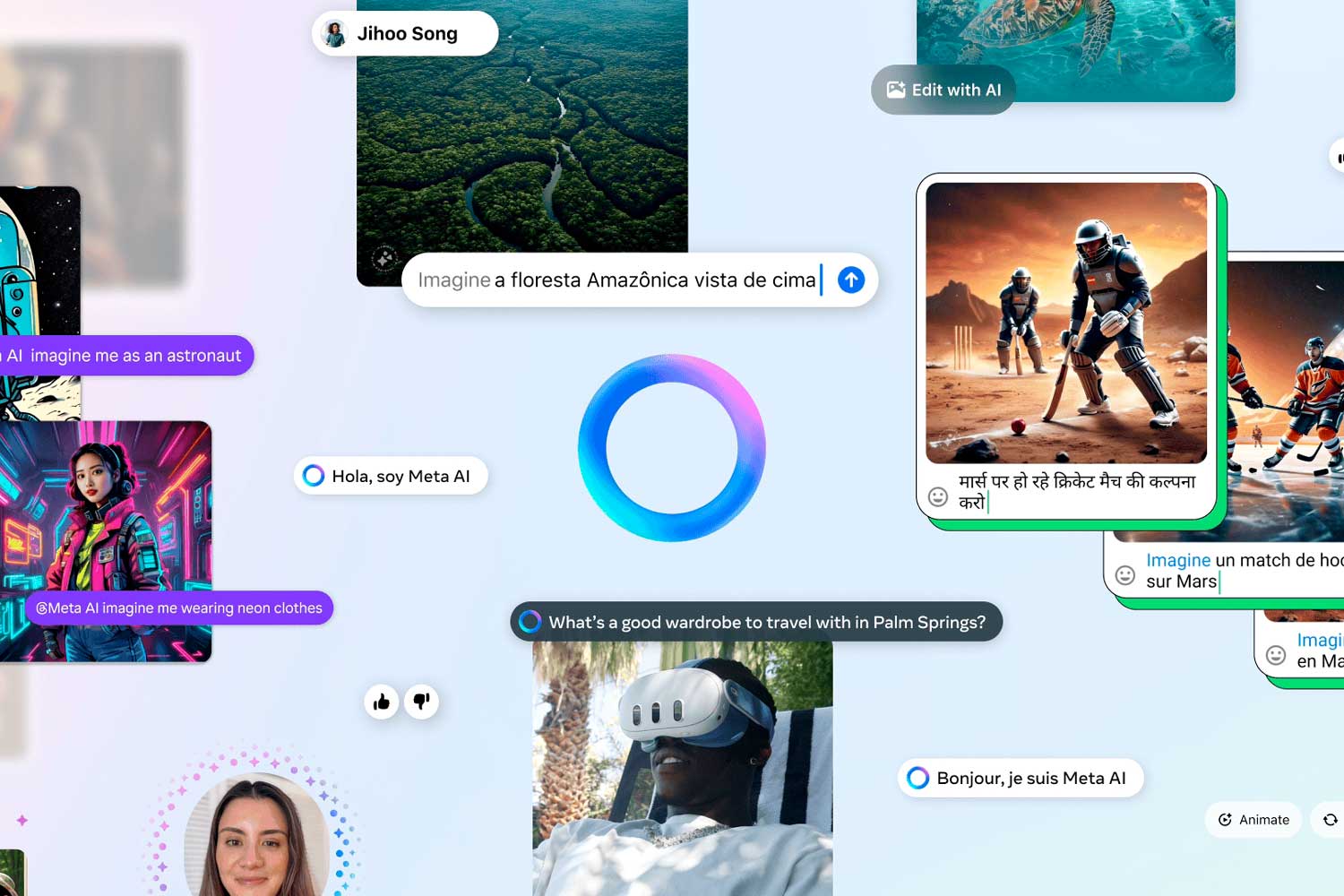Meta AI is preparing for a major international deployment, just a few days after the announcements at Meta Connect 2024. The AI assistant from the father of Facebook is now available in Brazil, Bolivia, Guatemala, Paraguay, the Philippines and the United Kingdom. An international expansion which will continue to reach 21 new countries.
No specific date has been mentioned, but Meta assures that its AI will arrive in the following regions: Algeria, Egypt, Indonesia, Iraq, Jordan, Libya, Malaysia, Morocco, Saudi Arabia, Sudan, Thailand, Tunisia, United Arab Emirates, Vietnam and Yemen. The deployment of Meta AI also comes with support for new languages. As of now, the assistant supports Tagalog and will “soon” support Arabic, Indonesian, Thai and Vietnamese. Users can access Meta AI from the web version, as well as the company’s applications (Facebook, Instagram, WhatsApp, Messenger).
The EU must be patient
If Europe is affected by the deployment of Meta AI with the United Kingdom, this is not the case for the European Union. The firm led by Mark Zuckerberg regularly discusses its reluctance to deploy its generative AI model in Europe due to its “uncertain regulatory environment”. The big boss of Meta also took the floor, with Daniel Ek (founder and CEO of Spotify) to criticize the way in which European regulators. These two leaders warn of the risk for Europe of falling behind in the field of AI. They call for a simplification and harmonization of regulations, with the aim of allowing the continent to have more European technological champions and to avoid a flight of its talents to other regions.
Meanwhile, Meta AI claims more than 400 million users and 185 million people use it every week on Meta’s products. A number that could be doubled if launched on the European market.
This expansion takes place as the firm launches its latest glasses in the United Kingdom and Australia. Our British neighbors will have to make do with voice support, Meta having not provided a date for the arrival of all of the glasses’ multimodal capabilities. In July, Axios had already explained that the company did not intend to use or distribute its multimodal models in Europe.
Meta uses data from Ray-Ban glasses
The American company blames the absence of Meta AI in Europe on regulators, but it is less talkative about the use of the data. The Next site reports that the company uses data from users of Ray-Ban “smart” glasses in the United States. This data is used to train the American giant’s AI and is recovered as soon as the user activates the AI functionalities.
On the other hand, the situation is different in Europe where Meta does not use its multimodal models. Less artificial intelligence therefore, but also less risk of seeing its data being exploited by the company. The GDPR blocks Meta’s attempts, which prefers to put pressure on Europe.
🟣 To not miss any news on the WorldOfSoftware, , .











